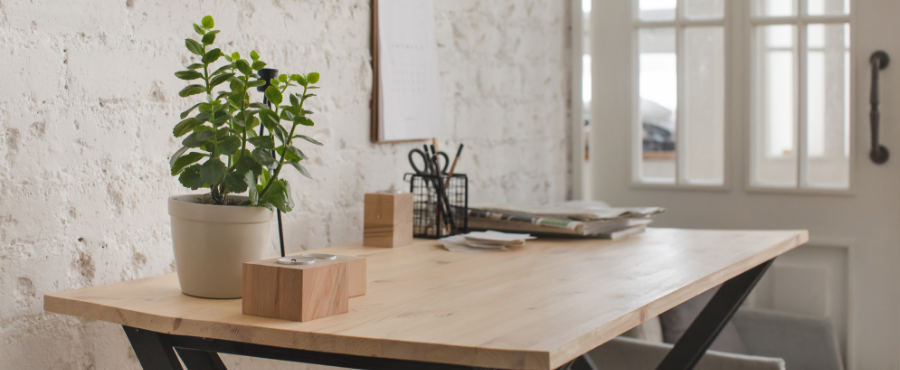We have been learning to thank for what we have for centuries. Maybe the time has come to be grateful for what we do not have. Because, regarding order, less is more. The importance of order is obvious at an aesthetic level, but can it really also affect our health?
Marie Kondo achieved huge fame five years ago with the "decluttering" philosophy when she published her book The life-changing magic of tyding Up (Aguliar 2014). But it was this year when its namesake program on Netflix caused the phenomenon to grow exponentially. On it, she traveled the USA organizing houses and arranging lives, as if she was a kind of Mary Poppins for adults.

But her method has nothing magical: the keys of the order that Marie Kondo proclaims are based on discarding, reducing our possessions to a manageable amount. We live in a capitalist society that pushes us to have more and more things but, ironically, our houses are getting smaller and smaller. And they get more crowded.
Just as fengshui ensured that the arrangement of the furniture could influence the energy of a house, the KonMari method preaches the benefits that an organized house provides in the health of its owner. But while the fengshui was based on concepts that are rather spiritual and difficult to demonstrate, the KonMari method is based on a much more tangible psychology.
According to the Life at home report, which is developed annually by Ikea, having too many things is the main cause of stress at home. Several psychologists delve into this idea. Having a disorderly and chaotic house can make you less productive, reduce your self-esteem and generate stress. It is, therefore, not about organizing your house, but about how to organize your life.

Another Japanese, Hideko Yamashita, has also been promulgating the importance of being organized in our health for several years. Fusing precepts of fengshui, coaching and philosophy, Yamashita presented in his book Dan-sha-ri: organize your life (Booket 2016) the concept of Dan-sha-ri, which is based on three precepts: the dan, reject the unnecessary things; the sha, get rid of the useless things that one possesses; and the ri, to detect the insane desire for unnecessary things.
Order can improve your life… And death. Margareta Magnusson is a Swedish artist who has transformed into an “order coach” with The Swedish art of ordering before death (Reservoir, 2018). The book analyzes the intersection between death and order and relates the benefits of organizing your home for when you are no longer present. Magnusson, who is 85 years old and already has her house organized just in case, assures that one of the most traumatic (and annoying) aspects of the death of a loved one is organizing his belongings. The post mortem cleaning. Overtaking our time and saving that bad experience to our loved ones would not only make us more considerate, but calmer at a spiritual level.

But let's re-analyze more earthly benefits. The professional organizer (yes, it is a profession now), María Gallay has imbibed all these precepts and adapted them to the Spanish idiosyncrasy. The power of order, a therapy against chaos (Poses, 2017) proposes systems of organization and ways to be organized that can serve from a family to a student who shares an appartment. However the great success of Gallay is to transcend the four walls of the home and defend the importance of having things organized, too, in the office space.
Organization is fundamental when it comes to work, and an orderled environment does nothing but enhance it. According to Gallay, it helps us find things quickly, guarantees that tasks are not misplaced and reduces stress. It also enhances our image as a resolute, organized and efficient person. Both to ourselves and to those around us.
This organization applies to the visible and the invisible. Different methods, such as lean management, (which Artiem has recently implemented) can help reduce both excess of effort and waste. A correct organization allows us to do more with less, differentiating the processes that generate value from those that do not contribute, known as waste. It´s a no brainer, order is important for your health, your work, and your life.